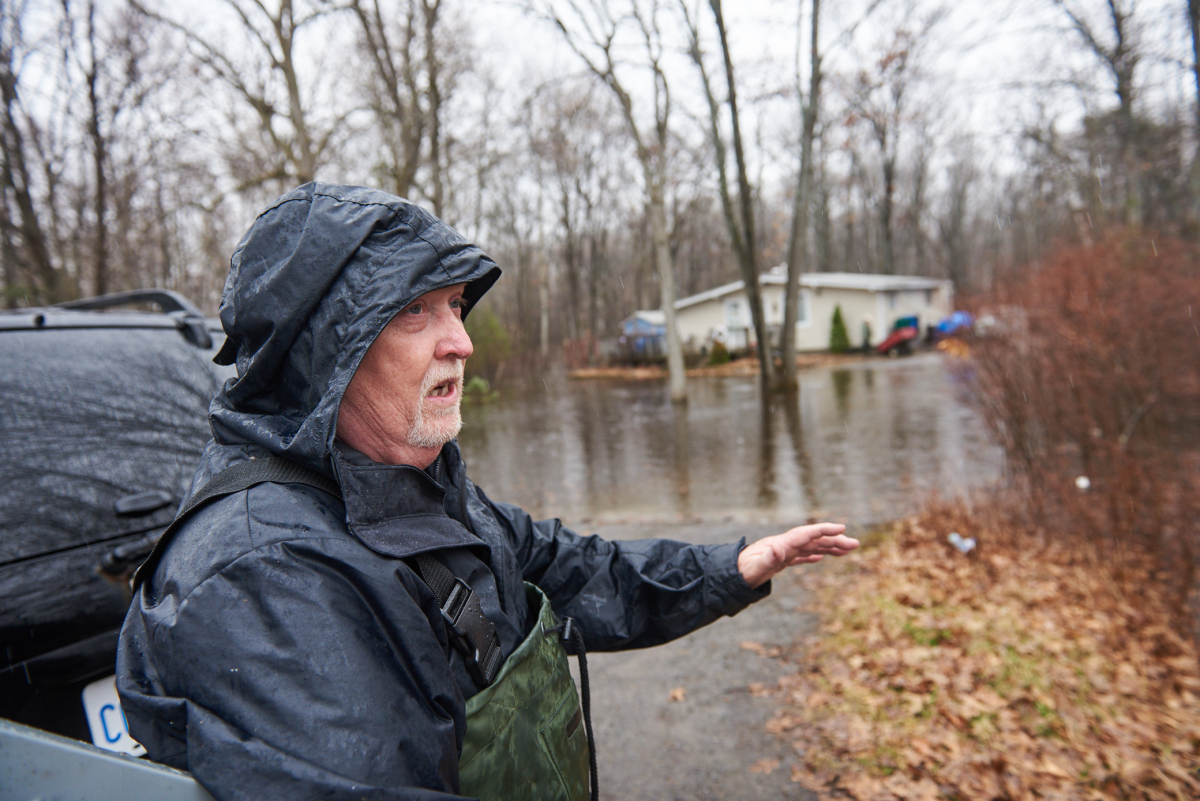Support strong Canadian climate journalism for 2025
For the next three months, Canadians can weigh in on how the country should adapt to devastating impacts of climate change like extreme heat, flooding and wildfires.
This public consultation is the “big final step” in making Canada’s first National Adaptation Strategy a reality, Environment Minister Steven Guilbeault said at a press conference in Montreal on Monday. The final strategy will be launched this fall as “a whole-of-society blueprint for co-ordinated action across the country” to ensure communities can weather the impacts of climate change, a news release says.
“No corner of Canada is untouched” and “the cost of climate change is mounting in all parts of the country,” said Guilbeault.
In many cases, the cost has been human lives.
In 2021, hundreds died during an unprecedented heat wave in B.C., and wildfires torched the town of Lytton, B.C., killing two. Just this past week, people in parts of the Northwest Territories, Manitoba, Alberta and Ontario have had to evacuate their homes due to flooding.
Rapidly reducing greenhouse gas emissions that drive global warming won’t be enough to avoid the steadily worsening impacts from climate change over the next two decades, according to a UN Intergovernmental Panel on Climate Change report released Feb. 28.
“We know there will be more catastrophes, we know they will be more severe. So, we need to better prepare,” Guilbeault told Canada’s National Observer at the time.
Organizations like Climate Proof Canada and the Canadian Climate Institute have underscored the importance of taking steps to lessen the impacts of climate change.
A discussion paper that will inform the final strategy was released at Guilbeault’s announcement on Monday. It includes five areas of focus: disaster resilience, health and well-being, infrastructure, natural environment and economy. Each has proposed goals for 2030 and 2050.
Adaptation can be as simple as protecting nature that provides resistance to flooding or other climate-related events. It could also mean constructing better insulated homes or sharing data on climate and weather systems with local public safety officials, city planners and public utilities so they can prepare for every situation, Guilbeault said at the press conference.
The paper “sets out useful principles” for developing the final strategy and some broad goalposts but is “still very, very high level,” said Ryan Ness, the Canadian Climate Institute’s adaptation research director. It does not include funding commitments or details on which departments will take the lead on different initiatives, timelines or specific deliverables — both of which are critical for a strong strategy, said Ness.
Ness “would have expected more detail at this point” but acknowledged the complexity of the task at hand, particularly because these actions and objectives involve different levels of government, communities, businesses organizations and more.
“There's a lot of consultation to be done and a lot of negotiation, frankly, to get agreement on both priorities and how they're going to be pursued,” he said.
The federal discussion paper contains lots of objectives, but a Canadian Climate Institute report co-authored by Ness says it's important to identify the biggest national climate change risks — for example, wildfires and flooding — and prioritize them in the strategy.
This final round of consultations is critical and will likely take longer than five months because the issues are so complex and so many different levels of government are involved, the report noted.
Despite these challenges, the federal government has an opportunity to show leadership by creating its own action plan for federal policies, programs and commitments that can help “get the ball rolling,” said Ness.
The possibility of a Federal Action Plan that would influence future programming and investment was floated by a 2021 advisory table on climate adaptation.
“That's a positive sign,” said Ness. “That will be a really important element of what defines success by this fall …”
The public can submit their opinions to the government’s online consultation portal until July 15.
“We need input from as many Canadians as possible on priorities for action,” said Guilbeault.
Natasha Bulowski / Local Journalism Initiative / Canada’s National Observer
This article has been updated to correct the name "Canadian Climate Institute" (previously known as the Canadian Institute for Climate Choices)







Comments